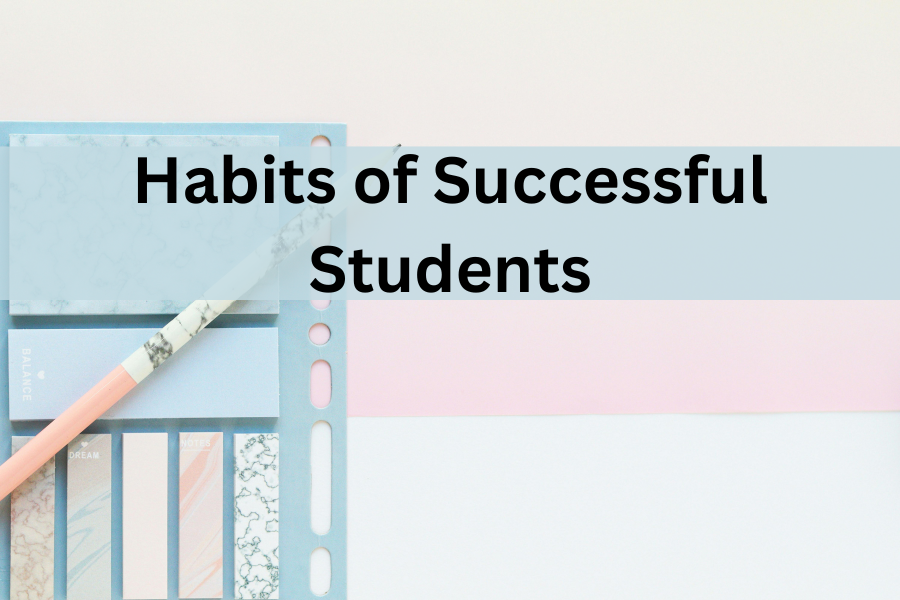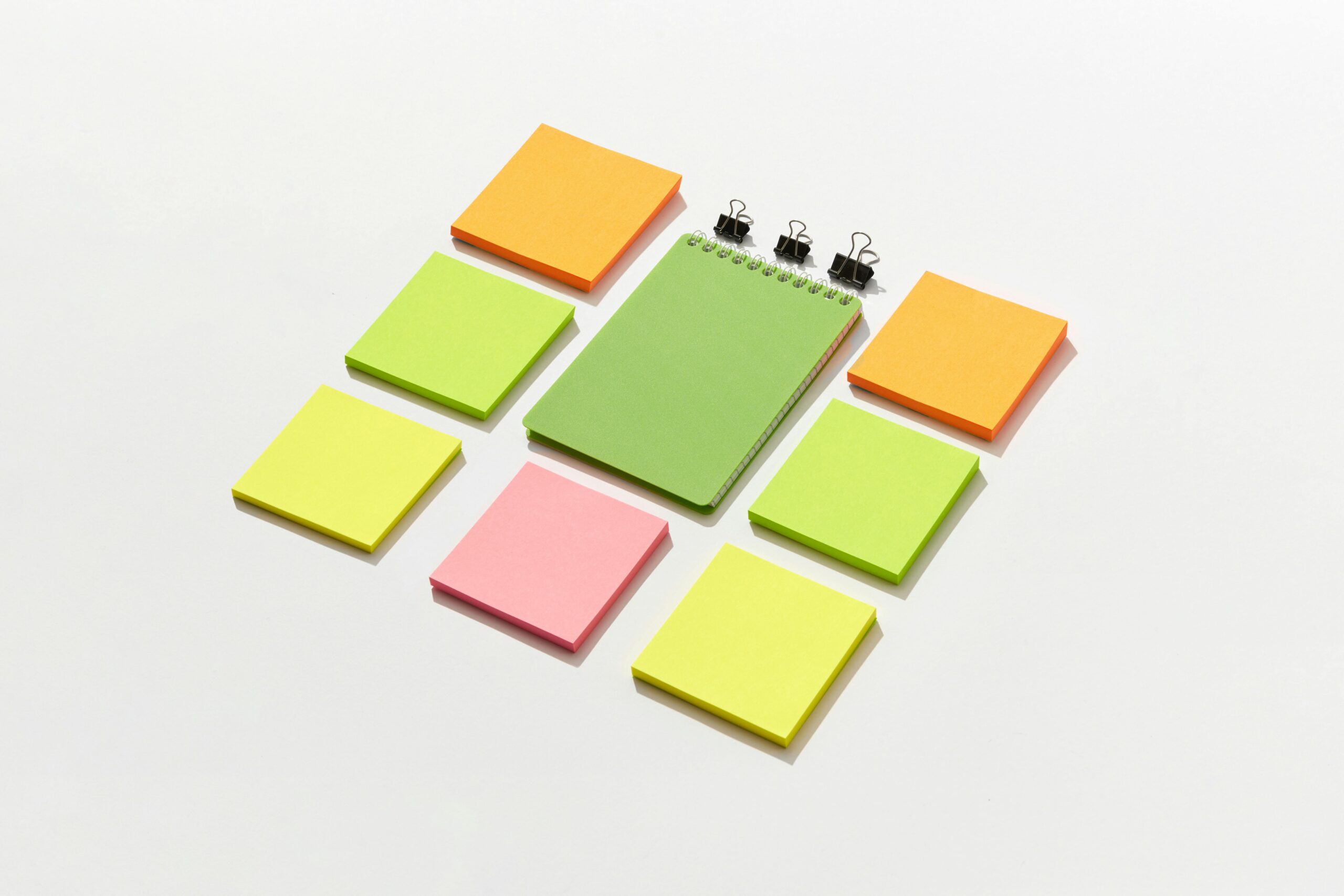25 Habits of Successful Students You'll Want To Try Immediately
These 25 habits of successful students will help you reach all of your academic goals.

Ever wonder how some students manage to excel academically, seemingly effortlessly, while juggling extracurriculars, social lives, and personal hobbies? It’s not magic or luck—it’s all about the habits of successful students that they’ve built.
If you want to boost your grades, manage your time better, or just feel more balanced, adopting the right habits of successful students can really help. Whether you're striving to boost your grades, improve your time management, or simply develop a more balanced lifestyle, adopting the right habits can make all the difference.
Here are some of the daily routines, study techniques, and mindset shifts that set high-achieving students apart. From organizing your study space to finding the best times to hit the books, these habits of successful students are all about making your life easier and your schoolwork more effective.
This post is all about the habits of successful students.
Habits of Successful Students
1. Set Clear Goals

Know exactly what you want to achieve in school. Setting clear goals gives you something to aim for and keeps you motivated. Whether it's getting an A in math, joining a club, or making the soccer team, having specific goals helps you focus your efforts.
Whatever you want to accomplish should have a SMART goal to go with and preferably multiple. If you don't know what a smart goal is, it stands for Specific, Measurable, Attainable, Realistic, and Time-Bound.
Write down your goals and keep them where you can see them every day. This way, you'll have a constant reminder of what you're working towards. Break your big goals into smaller, manageable steps so they don’t seem so overwhelming.
2. Create a Study Schedule

Map out your study times and stick to them. It’s like having a game plan so you don’t end up cramming the night before a test. Look at your weekly schedule and find blocks of time where you can fit in some studying.
Even short, regular study sessions can make a big difference. Use a planner or a calendar app to schedule these times and set reminders. Be realistic about how long you can concentrate and include breaks. If you know when you’re going to study, it’s easier to avoid distractions and procrastination.
Related Post You Might Like: Life-Changing Time Management Schedule for Students
3. Stay Organized

Keep your stuff in order. Use folders, binders, or apps to make sure you can find what you need when you need it.
When your notes and materials are organized, you spend less time looking for things and more time studying. Develop a system that works for you, whether it’s color-coding your notes or using digital tools.
Regularly clean out your backpack and study area to keep clutter at bay. Being organized also means keeping track of deadlines and assignments, so you’re not caught off guard.
4. Use a Planner

Keep track of assignments, tests, and deadlines. A planner can be a lifesaver when things get busy. Write down everything you need to remember—homework, projects, exam dates, and even social events.
Review your planner daily and update it as needed. This helps you manage your time effectively and ensures you don’t forget important tasks. Choose a planner format that works for you, whether it’s a physical notebook or a digital app. Using a planner can reduce stress and help you stay organized.
5. Ask Questions

Don’t be shy about asking questions. If you’re confused, chances are someone else is too.
Asking questions can clarify difficult concepts and help you understand the material better. It shows your teachers that you’re engaged and interested in learning.
Don’t wait until you’re completely lost—ask questions as soon as something doesn’t make sense. Participate in class discussions and don’t hesitate to approach your teacher after class if you need extra help. Asking questions is one of the habits of successful students that is also a sign of a proactive learner.
6. Join Study Groups

Team up with classmates to study. It’s a great way to share ideas and keep each other motivated. Study groups can help you understand different perspectives and clarify doubts.
Choose group members who are serious about studying and can stay on task. Set clear goals and agendas for each study session. Use study groups to review material, prepare for exams, and tackle difficult topics.
Sharing knowledge and discussing concepts can deepen your understanding. Plus, studying with others can make learning more fun.
7. Eliminate Distractions

Find a quiet place to study and put away your phone. Focus on your work without interruptions. Distractions can significantly reduce your study efficiency. Identify what distracts you the most and find ways to minimize them.
Turn off notifications on your devices or use apps that block social media while you study. Create a dedicated study space that’s free from noise and other interruptions.
Let your family or roommates know your study schedule so they can respect your quiet time. Staying focused helps you get more done in less time.
8. Use Your Resources

Make the most of libraries, online tutorials, and extra help from teachers. There are tons of resources out there to help you succeed. Don’t hesitate to seek out additional information and assistance.
Use online platforms like Khan Academy, Quizlet, or YouTube for extra practice and explanations. Take advantage of library resources, including books, journals, and study spaces.
Attend extra help sessions or tutoring if you need more support. Exploring different resources can provide new insights and make learning easier.
9. Take Care of Your Health

Don’t skimp on sleep. Being well-rested helps you stay alert and focused in class. Aim for 7-9 hours of sleep each night to function at your best. Establish a regular sleep routine to improve the quality of your rest.
Fuel your brain with good food. Healthy snacks and meals can help you stay energized and focused. Incorporate a balanced diet with plenty of fruits, vegetables, whole grains, and proteins. Avoid excessive sugar and junk food, which can lead to energy crashes. Stay hydrated by drinking plenty of water throughout the day.
It actually all makes such a big difference.
10. Take Effective Notes

Learn how to take good notes. Whether you’re doodling diagrams or using bullet points, find a method that helps you remember the material. Effective note-taking is more than just writing down what the teacher says.
Summarize information in your own words and highlight key points. Use abbreviations and symbols to write faster. Reviewing your notes soon after class can help reinforce what you’ve learned.
Try different methods like the Cornell system or mind mapping to see what works best for you.
Related Post You Might Like: 11 LIFE-CHANGING HIGH SCHOOL NOTE-TAKING TIPS THAT WILL MAKE YOU A STRAIGHT-A STUDENT
11. Stay Consistent

Make studying a habit. Even if it’s just a little bit each day, consistency pays off.
Regular study sessions help you retain information better than cramming. Set a specific time each day for studying to build a routine. Even on busy days, try to fit in a short review session.
Consistency helps you stay on top of your coursework and reduces stress. It also makes studying feel less overwhelming and more manageable. Staying consistent can lead to steady progress and long-term success.
12. Be Open to Feedback

Ask for feedback and use it to improve. Constructive criticism can help you get better. Don’t be afraid to ask teachers, peers, or mentors for their opinions. Use their feedback to identify your strengths and areas for improvement.
Reflect on the feedback and make a plan to address any weaknesses. Regularly seeking feedback shows that you’re committed to growth. It can also provide new perspectives and insights. Embracing feedback helps you continuously improve and achieve your goals.
13. Read More

Reading a variety of materials can improve your critical thinking and creativity. Try reading fiction, non-fiction, newspapers, and journals. Look for books or articles that challenge your perspectives.
Reading more helps you stay informed and engaged with the world. It can also enhance your vocabulary and writing skills. Making time for reading can enrich your education and personal growth.
14. Try Not to Multitask

Focus on one thing at a time. Multitasking can make you less efficient and more stressed. Concentrate fully on the task at hand to improve your productivity.
Avoid switching between tasks frequently, as it can disrupt your focus. Prioritize your tasks and tackle them one by one. Use techniques like time blocking to dedicate specific periods to different activities.
Limiting multitasking helps you complete tasks more quickly and accurately. It also reduces stress and improves the quality of your work.
15. Stay Engaged in Class

Be an active participant in the class. Listen, take notes, and join discussions. Engagement in class can significantly improve your learning experience.
Pay attention to the teacher and ask questions if you’re confused. Take thorough notes to reinforce your understanding of the material. Participate in group activities and discussions to share ideas and learn from others.
Staying engaged helps you retain information better and stay motivated. It also shows your teachers that you’re interested and invested in your education.
16. Keep Your Workspace Clean

A tidy study area can help you focus better. Clear away clutter and keep only what you need. A clean workspace reduces distractions and makes it easier to find materials.
Set up your study area in a way that’s comfortable and conducive to learning. Keep your desk organized with supplies like pens, notebooks, and a planner. Regularly clean and declutter your space to maintain a productive environment.
A neat workspace can improve your concentration and efficiency. It can also make studying a more pleasant experience.
17. Stay Motivated

Find reasons to stay driven. Whether it’s personal rewards or long-term goals, keep your motivation high. Remind yourself why you’re studying and what you hope to achieve.
Set short-term and long-term goals to keep yourself focused. Reward yourself for completing tasks or reaching milestones. Surround yourself with positive influences and supportive friends.
Find ways to make studying enjoyable, like listening to music or changing your study environment. Staying motivated helps you maintain momentum and achieve your goals.
18. Take Breaks

Don’t burn out. Use methods like the Pomodoro technique to take regular breaks and keep your mind fresh. Studying for long periods without breaks can lead to fatigue and reduced productivity.
The Pomodoro technique involves studying for 25 minutes and then taking a 5-minute break. After four sessions, take a longer break of 15-30 minutes. Use breaks to relax, stretch, or do something enjoyable.
Taking regular breaks helps you maintain focus and energy levels. It can also improve your overall well-being and reduce stress.
19. Practice Time Management

Perfecting time management in school can take a lot of practice, but it's definitely not impossible. Effective time management is a skill that can completely change your life. Take a few weeks to try and figure out what time-management skills work best for you. Then, you can practice them until you're a natural.
It will truly make your life SO MUCH easier.
Related Post You Might Like: Life-Changing Time Management Schedule For Students
20. Review Your Notes Regularly

Go over your notes right after class to reinforce what you’ve learned. Reviewing notes soon after class helps solidify the material in your memory.
Take a few minutes to read through your notes and highlight key points. Add any additional information or clarify anything that’s unclear. Reviewing regularly helps you retain information better and prepares you for exams.
It also reduces the need for last-minute cramming. Make reviewing notes a part of your daily study routine for maximum benefit.
21. Set Boundaries

Learn to say no to distractions or unnecessary commitments. Protect your study time.
Setting boundaries helps you manage your time and focus on your priorities. Politely decline activities or requests that interfere with your study schedule. Let your friends and family know when you need uninterrupted time for studying.
Avoid multitasking and limit distractions like social media during study sessions. Setting boundaries ensures that you have the time and energy to
22. Reflection

Regularly check in on your progress. See what’s working and what needs to change. Reflection helps you stay on track and make necessary adjustments. Take time to assess your achievements and challenges.
Identify strategies that are effective and areas that need improvement. Set new goals based on your reflections and plan how to achieve them. Regular reflection helps you stay focused and motivated.
It also encourages a growth mindset and continuous improvement. Being able to reflect on progress is a habit of successful students that can lead to better outcomes and personal growth.
23. Be Proactive

Take initiative in your learning. Don’t wait for opportunities to come to you; seek them out. Being proactive means taking charge of your education and seeking out resources.
Look for extra help if you’re struggling with a subject. Find additional materials or activities to enhance your learning. Participate in extracurricular activities that interest you. Set goals and make plans to achieve them.
Being proactive helps you stay engaged and motivated. It also demonstrates a strong commitment to your education.
24. Celebrate Success

Taking the time to celebrate your successes, big or small, is super important. It’s easy to get caught up in the next task or goal, but acknowledging your achievements boosts your confidence and motivation.
When you hit a milestone, whether it’s acing a test, finishing a tough project, or just staying consistent with your study schedule, take a moment to recognize your hard work. Treat yourself to something you enjoy, like a favorite snack, a fun activity, or a relaxing break. Share your successes with friends and family—they’ll be happy to cheer you on!
Celebrating your achievements creates positive reinforcement, making it easier to stay committed and enthusiastic about your goals. Plus, it’s a great way to reflect on how far you’ve come and remind yourself that your efforts are paying off.
25. Develop A Growth Mindset

Believe that you can get better with practice. Embrace challenges as opportunities to learn and grow. A growth mindset means seeing effort and persistence as paths to improvement.
Instead of fearing mistakes, view them as learning experiences. Focus on progress rather than perfection. Celebrate your efforts and achievements, no matter how small. Surround yourself with people who encourage a growth mindset.
Developing a growth mindset is a habit of successful students that can increase your resilience and motivation. Believing in your potential helps you overcome obstacles and achieve your goals.
This post is all about the habits of successful students.
1 comment
Comments are closed.